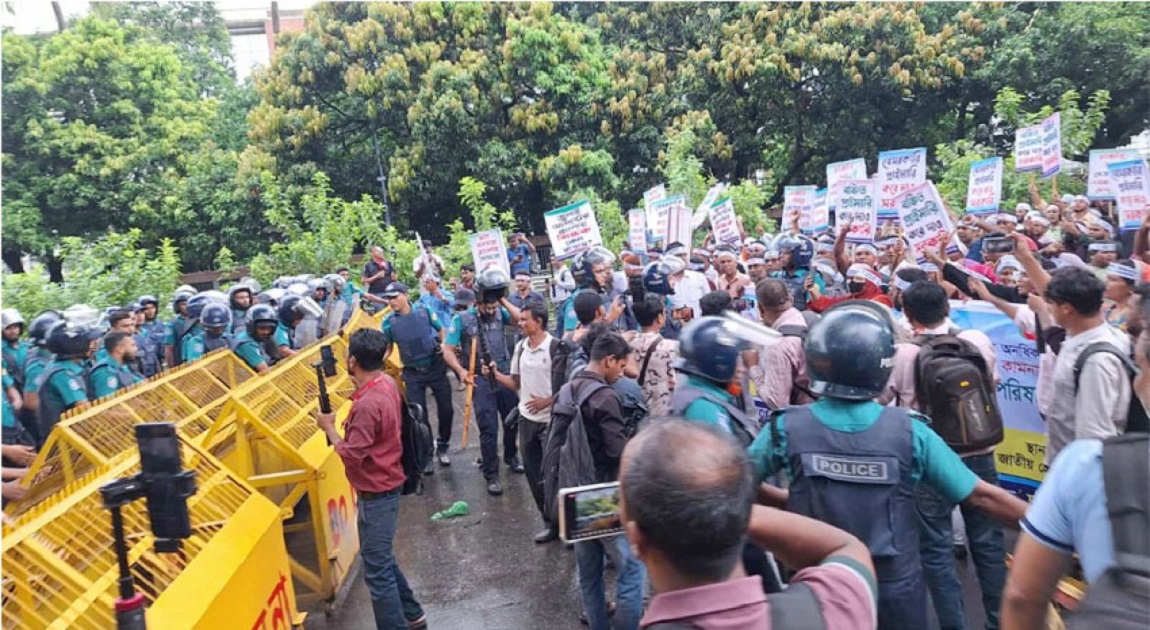Police on Monday afternoon used water cannons and sound grenades to disperse private primary school teachers who were marching toward the Jamuna to press for nationalisation of their schools.
The teachers began their march from in front of the National Press Club towards the Chief Adviser’s residence. However, law enforcement stopped them near the High Court’s Kadam Fountain area. A water cannon and a sound grenade were fired to disperse the crowd, forcing the protesters to retreat back to the Press Club area.
Earlier in the day, from around 10am, about a thousand teachers from across the country gathered under the banner of the Bangladesh Private Primary School General Teachers Unity Council. They are demanding immediate nationalisation of more than 5,000 private primary schools which were excluded from government takeover despite official recommendations.
According to the protesting teachers, the then-government had announced the nationalisation of all private primary schools on 9 January 2013, when there were over 30,000 such schools. However, nearly 5,000 schools were left out allegedly for political reasons. Despite several letters issued by the government in 2016 and 2018 and a recent letter from the Chief Adviser’s Office to the Ministry of Primary and Mass Education on 3 February this year, the process has yet to move forward.
Md. Naushad Ahmed, the central coordinator of the Teachers Unity Council, said, “The government must nationalise the over 5,000 excluded schools without delay in line with the Chief Adviser’s directive and the recommendations of the consultation committee.”
Mahbuba Mala, another coordinator, added that teachers were living in dire conditions due to the lack of nationalisation: “We teach other people’s children but our own fortunes have not improved.”
Coordinator Ohidul Islam said the schools were deliberately excluded from nationalisation because of political vengeance, and called for the Chief Adviser’s intervention. Coordinator Shahidul Islam from Bogura stated, “In the past government we only received assurances, not action. This time we expect a real solution.”













-20260226080139.webp)






-20260225072312.webp)










-20260219054530.webp)
-20260224075258.webp)





-20260221022827.webp)